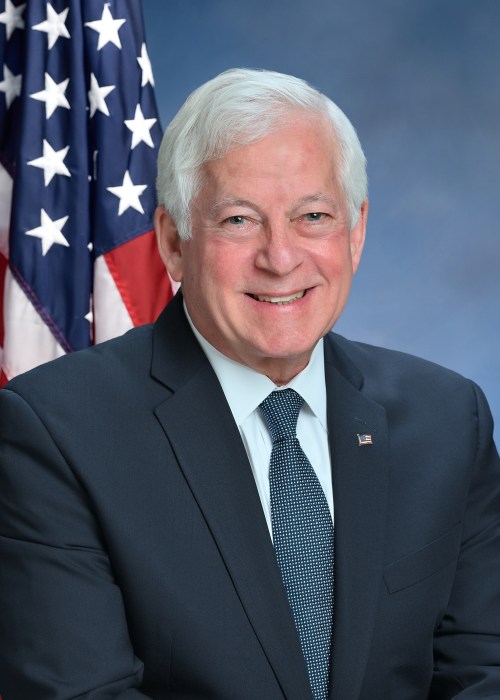Unspeakable
The story was lost in the miasma of events that pelted the national landscape like steely droplets of rain. Kermit Gosnell, an abortionist practicing his grisly trade in Philadelphia, is on trial for the murder of one woman and 7 infants. Gosnell, who once plied his trade, in back alleys, had a reputation for cavalierly performing abortions at any stage of pregnancy. The legal limit in the city of brotherly love is 24 weeks, but in Gosnell’s clinic, who had the time to consult a calendar?
They were a busy bunch as the hundreds of fetal body parts that were found strewn all over the clinic clearly demonstrated. The modus operandi of this crack team of terminal specialists proceeded as follows: Gosnell or a staffer would induce labor and deliver the baby alive. They would then slash the helpless infant, Jack the Ripper style, with scissors through the neck and spine. Though Gosnell’s clinic was a veritable human abattoir, they euphemistically referred to these gut wrenching executions as snippings. In this pitiless fashion, Gosnell ended hundreds of pregnancies and in the process mutilated a number of women.
How quickly and decisively the winds of culture can blow away the edifice of what were once the inviolable canons of social rectitude. It wasn’t long ago when the Democratic Party, the majority party, was a manifestly pro-life party. Listen to Senator Ted Kennedy, the Lion of the Left, in the years before the landmark Roe v. Wade decision: “The legalization of abortion on demand” said the Massachusetts senator, “is not in accordance with the value which our civilization places on human life.” Or the poetic symmetry of Hubert Humphrey, the party’s presidential nominee in 1968, when he spoke of the responsibility of elected officials as being “the guardians of those who are in the dawn of life, the children; those who are in the twilight of life, the elderly; and those who are in the shadow of life, the sick, the needy, the handicapped.”
To target any group, whatever their physical status, as bereft of humanity is to target all of us. The garment that makes humanity metaphysically seamless cannot be rent willfully, tearing off a sleeve there or unraveling a hem over there. How does such callousness reflect on the mentally retarded child, the quadriplegic, the stroke victim, the elderly person with dementia. To designate categories of non-human persons is a dangerous business and I imagine was the reason that President Clinton hoped that while abortions should be legal and safe they should also be rare. Unfortunately, there are those who are so ferociously defensive in defending the right to an abortion that to impede it in any way, even when performed in the most barbaric manner, cannot be countenanced.
Infanticide lingers like a heavy mist; the incongruity between the neonatologist and the abortionist is so dramatic that they are as contradictory as life and death. Modern science has allowed us to probe so deeply into the molecular structure of life as to leave no doubt that senescent fetal life is not the imaginings of some obscure theological dogma, but an indisputable biological fact. We have become so obsessed with the idea of rights, that we have forgotten our responsibilities to discover the truth. Epistemological optimism is inextricably connected to the idea that the more we think about something, at least collectively, the closer to the truth we will get.
Our thinking, however, is often shaped by the contours of our prejudices and predispositions. It’s a kind of thinking that is ever more defined by its relentless solipsism; the notion that only you and the time you live in is the only thing relevant in our universe. Wilfred M. McClay, from the University of Tennessee, structured the proposition in a manner I’ve often alluded to but he did it in such a uniquely arresting way. McClay notes that contemporary thinking mirrors the Jeffersonian dictum that the earth belongs to the living, a philosophy that a majority, often unconsciously, subscribes to. But they do so at the expense of the more morally expansive Burkean view that society is an eternal contract between the living, the dead and the unborn. It is this worldview, the Burkean one, which restrains the individual to act too willfully as it must necessarily be burdened by the wisdom and experience of the ages. The Burkean world is a world fraught with moral interdictions, limiting freedom, but at the same time is paradoxically liberating.
The right to an abortion, whatever the circumstances, even for something as trivial as gender selection, is a staple of contemporary society unlikely to change in the foreseeable future. Nevertheless, this is too important an issue to merely echo Mario Cuomo’s 1984 Notre Dame speech about being personally opposed but drawing a line about the personal morality of others. If this philosophy had prevailed in 1850, the slaves would still be laboring on the plantations. My hope is that the Gosnell case will serve to sensitize the conscience of the nation, spurring it to turn away from at least trimester abortions. There is overwhelming scientific evidence to view nascent life as worthy of inclusion into what has been an ever-widening circle of human equality. In this important sense, the pro-life contingent has made commendable strides. There are classes of people, referred to by the political scientist as the “persuadables,” a constituency that is open to evidence and reasoned appeals. But politics must do its work cautiously; never pushing the envelope further than public opinion can either sustain or accommodate and in such a way as not to inflame the debate with ad hominem attacks or pejoratives. You cannot insult, said Disraeli, and instruct at the same time.
In this way, more workable compromises between competing narratives can be forged by which narrowing the circle of permissible abortions can be hammered out amid the maelstrom of democracy and the prevailing public attitudes. It’s hardly a perfect solution but considering the frailty of either moving with too much haste or digging in with stalwart intransigence, it is the best one can hope for.

























